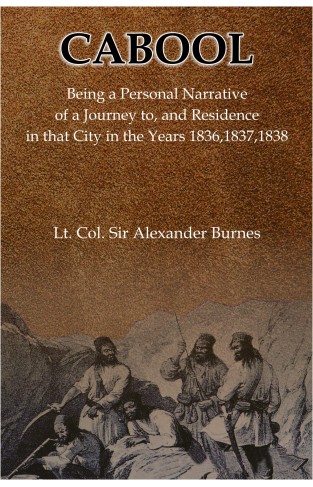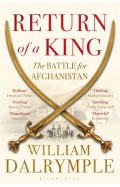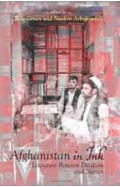Cabool (Being a Personal Narrative of a Journey)
By: Sir alexander burns
-
Rs 900.00
- Rs 1,200.00
- 25%
You save Rs 300.00.
Due to constant currency fluctuation, prices are subject to change with or without notice.
Cabool, first published in 1842, is a must read. It s a rare book published with the aim to preserve archives. In recent years, there has been a growing and urgent upsurge of interest to learn about Afghanistan primarily, for political reasons and strategic international compulsions. The personal accounts and observations of Sir Alexander Burnes may provide us the historical backdrop of conflict in contemporary Afghanistan. It also presents the background of a colonial British strategy and the Russian plans for the hot waters as they were being constructed in the author's time to which he was also an architect in his own right. The book invokes a world where war with Sindh is successfully averted; military features of the native land is mapped by the British; the river Indus is surveyed under false pretext; natural history and geology of the Indus basin is also recorded; negotiations aim at a commercial treaties with Dost Mohammed, sovereign of Afghanistan, and also with the Indian chiefs of the western provinces; Afghans are learning to live with Punjabis under Ranjeet Singh; Kaffirs dance to the tune of their ancient music, but the native suffers all in all to gradually become grey to the expanding British and Russian empires. Sir Alexander Burnes led the British commercial mission to the court of the Emir of Kabul in 1837-38. The mission was a failure. Burnes, however, re-entered Kabul in 1839 with the invading British troops that occupied the Afghan capital. In 1841 he lost his life just at the age of 36 at the hands of a raging Afghan mob
Cabool, first published in 1842, is a must read. It s a rare book published with the aim to preserve archives. In recent years, there has been a growing and urgent upsurge of interest to learn about Afghanistan primarily, for political reasons and strategic international compulsions. The personal accounts and observations of Sir Alexander Burnes may provide us the historical backdrop of conflict in contemporary Afghanistan. It also presents the background of a colonial British strategy and the Russian plans for the hot waters as they were being constructed in the author's time to which he was also an architect in his own right. The book invokes a world where war with Sindh is successfully averted; military features of the native land is mapped by the British; the river Indus is surveyed under false pretext; natural history and geology of the Indus basin is also recorded; negotiations aim at a commercial treaties with Dost Mohammed, sovereign of Afghanistan, and also with the Indian chiefs of the western provinces; Afghans are learning to live with Punjabis under Ranjeet Singh; Kaffirs dance to the tune of their ancient music, but the native suffers all in all to gradually become grey to the expanding British and Russian empires. Sir Alexander Burnes led the British commercial mission to the court of the Emir of Kabul in 1837-38. The mission was a failure. Burnes, however, re-entered Kabul in 1839 with the invading British troops that occupied the Afghan capital. In 1841 he lost his life just at the age of 36 at the hands of a raging Afghan mob
Cabool (Being a Personal Narrative of a Journey)
By: Sir alexander burns
Rs 900.00 Rs 1,200.00 Ex Tax :Rs 900.00
Zubin Mehta: A Musical Journey (An Authorized Biography)
By: VOID - Bakhtiar K. Dadabhoy
Rs 472.50 Rs 1,050.00 Ex Tax :Rs 472.50
Holy War The Crusades And Their Impact On Todays World
By: Karen Armstrong
Rs 3,436.00 Rs 4,295.00 Ex Tax :Rs 3,436.00
Return of a King The Battle for Afghanistan
By: William Dalrymple
Rs 2,636.00 Rs 3,295.00 Ex Tax :Rs 2,636.00
Afghanistan in Ink: Literature Between Diaspora and Nation
By: Nile Green
Rs 1,732.50 Rs 3,850.00 Ex Tax :Rs 1,732.50
Chinas Cosmological Prehistory: The Sophisticated Science Encoded in Civilizations Earliest Symbols
By: Laird Scranton
Rs 357.75 Rs 795.00 Ex Tax :Rs 357.75
Britain's Europe: A Thousand Years of Conflict and Cooperation
By: Brendan Simms
Rs 821.25 Rs 1,095.00 Ex Tax :Rs 821.25
Manning Up: How the Rise of Women Has Turned Men into Boys
By: Kay Hymowitz
Rs 646.75 Rs 995.00 Ex Tax :Rs 646.75
Holy War The Crusades And Their Impact On Todays World
By: Karen Armstrong
Rs 3,436.00 Rs 4,295.00 Ex Tax :Rs 3,436.00
Return of a King The Battle for Afghanistan
By: William Dalrymple
Rs 2,636.00 Rs 3,295.00 Ex Tax :Rs 2,636.00
Afghanistan in Ink: Literature Between Diaspora and Nation
By: Nile Green
Rs 1,732.50 Rs 3,850.00 Ex Tax :Rs 1,732.50
Chinas Cosmological Prehistory: The Sophisticated Science Encoded in Civilizations Earliest Symbols
By: Laird Scranton
Rs 357.75 Rs 795.00 Ex Tax :Rs 357.75
Britain's Europe: A Thousand Years of Conflict and Cooperation
By: Brendan Simms
Rs 821.25 Rs 1,095.00 Ex Tax :Rs 821.25
No recently viewed books available at the moment.
Zubin Mehta: A Musical Journey (An Authorized Biography)
By: VOID - Bakhtiar K. Dadabhoy
Rs 472.50 Rs 1,050.00 Ex Tax :Rs 472.50
Cabool (Being a Personal Narrative of a Journey)
By: Sir alexander burns
Rs 900.00 Rs 1,200.00 Ex Tax :Rs 900.00
Holy War The Crusades And Their Impact On Todays World
By: Karen Armstrong
Rs 3,436.00 Rs 4,295.00 Ex Tax :Rs 3,436.00
Return of a King The Battle for Afghanistan
By: William Dalrymple
Rs 2,636.00 Rs 3,295.00 Ex Tax :Rs 2,636.00
Afghanistan in Ink: Literature Between Diaspora and Nation
By: Nile Green
Rs 1,732.50 Rs 3,850.00 Ex Tax :Rs 1,732.50
Chinas Cosmological Prehistory: The Sophisticated Science Encoded in Civilizations Earliest Symbols
By: Laird Scranton
Rs 357.75 Rs 795.00 Ex Tax :Rs 357.75
Britain's Europe: A Thousand Years of Conflict and Cooperation
By: Brendan Simms
Rs 821.25 Rs 1,095.00 Ex Tax :Rs 821.25













-120x187.jpg?q6)



















